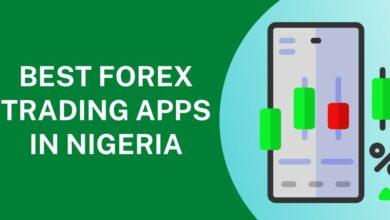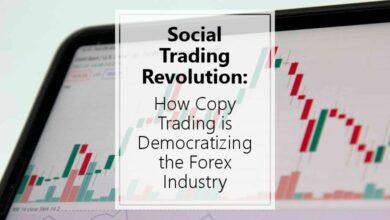
Are Forex Trading Platforms Legal in Nigeria?
The instigation of foreign exchange market in Nigeria down to its current state was influenced by a number of factors. Some of these factors include structural shifts in production, institutional changes in economy, and shifting pattern of international trade.
Forex trading is the act of buying and selling the currencies of other countries. Any market in which the currencies of other countries are being traded is known as the foreign exchange market. To carry out this trading, you need trading platforms.
👉 Relocate to Canada Today!
Live, Study and Work in Canada. No Payment is Required! Hurry Now click here to Apply >> Immigrate to CanadaForex trading platforms are third-party applications which can be installed on your smartphones and PCs, and are provided by forex brokers.
In Nigeria, there are currently over 300,000 forex traders exploring the market, thanks to the internet that enables the wide availability of information.
Prior to this era, potential retail traders and investors needed to contact financial institutions directly on the latest financial reports. However, the internet has come to bridge the gap between retail traders and the necessary financial information needed to get started with trading.
With these substantial figures in number of active Forex traders, there is still a question on whether or not Forex trading platforms are legal in Nigeria.
Online Forex Trading In Nigeria Is Currently Unregulated
The Securities and Exchange Commission (SEC) is the primary capital market regulator in Nigeria. Its mandate is to create a robust and efficient capital market that can contribute to the nation’s economic development. There are other market regulators in Nigeria as seen below:
| S/N | Financial Market Regulator | Market Regulated |
| 1 | Central Bank of Nigeria (CBN) | Money Market |
| 2 | Securities and Exchange Commission (SEC) | Capital Market |
| 3 | National Pension Commission (PENCOM) | Pension Market |
| 4 | National Insurance Commission (NAICOM) | Insurance Market |
In 2018, SEC published a notice clarifying its stand on retail online forex trading on its website that specifically stated that retail online forex trading is currently unregulated in Nigeria. It further warned that anyone that engages in such trading activity, is doing so at his/her own risk.
The absence of regulation has encouraged forex scammers to target Nigerian traders. Not only can you lose your investments to scammers, you can also end up in debt.
👉 Relocate to Canada Today!
Live, Study and Work in Canada. No Payment is Required! Hurry Now click here to Apply >> Immigrate to CanadaSome forex brokers who are licensed in foreign countries where there is strong government oversight of the industry, now accept both beginner & experienced Nigerian traders. On the African continent, South Africa’s FSCA has licensed most forex brokers followed by the CMA of Kenya.
Many of the South African forex brokers in this research also operate in Nigeria & accept Nigerian traders, so most local traders register with one of these brokers. These include brokers like HotForex, Tickmill, Exness, FXTM etc. and most Nigerian traders are registered with these brokers.
To check the regulatory status of a forex broker, visit their website and navigate to the regulation section. Some of them have multiple regulation from various countries, so you can take their registration number, and verify it from the website of the purported regulator.
A statutory body should always oversee and regulate financial markets to assure their security. This regulation is crucial in keeping them in check, and providing assurance to retail traders that their investments are legitimate and secure.
To operate legally, forex brokers must comply with global supervisory body standards, and communicate market changes to their clients. Additionally, they should be licensed, undergo regular audits, and update their websites with warning messages.
Regulation helps protect you from Ponzi and pyramid schemes. In a Ponzi scheme, the operators could claim to invest in forex, and ask you to give them money to trade for you. They promise you fixed and constant returns at no risk. Once you part with cash, they use it to pay older investors.
This Ponzi cycle continues until the inflow of new investors dries up, and they no longer have money to pay existing investors. At this point they freeze your account citing government persecution as an excuse. Some even post fake bankruptcy notices on their pages and disappear.
Pyramid schemes can also be fraudulent.
Here the operators can claim to be selling forex signals or even trading forex on behalf of customers. They ask you to pay a registration fee, give them money to trade for you, buy forex products such as books, and then recruit new members in order to accumulate points needed to ascend the pyramid.
Those on top of the pyramid get a share of the registration fee paid by new members below them. This goes on till new members stop coming, and the pyramid collapses. The operators abscond with the registration fees and invested capital.
The absence of regulatory bodies to oversee foreign currency trading in Nigeria, is a significant obstacle that hinders the transparency of the market. Without regulatory bodies in place, you are vulnerable to fraudulent actors who may engage in shady practices such as misappropriation of funds and market manipulation.
On a final note, the lack of regulations makes it challenging to resolve disputes between you and your broker, ultimately creating a risky environment for investors. It is crucial for the Nigerian government and financial institutions to take the initiative to regulate foreign currency trading to ensure a safe and thriving Forex market for all parties involved.
Forex Trading In Nigeria Is Legal But at Your Own Risk
In as much as the online forex market is not regulated in Nigeria, you are unlikely to get arrested for trading forex. However, you do so at your own risk. This explains the reason why greater numbers of Nigerians are exploring the market.
In other words, there is no law banning retail online forex trading in Nigeria. It is however, highly recommended that you tread carefully to avoid losing your money.
Forex trading is a highly volatile and risky activity and as a Nigerian trader, it is essential to understand the risks involved. Therefore, it is crucial to conduct thorough research, manage your risk, and only trade with funds that you can afford to lose.
While the Nigerian government does not regulate Forex trading, there are other foreign regulatory bodies that oversee forex brokers. However, it is up to you to ensure that you are trading with a reputable broker.
In addition to managing your risk and trading with reputable brokers, it is also important to have a solid trading strategy.
A trading strategy can help you to make informed trading decisions, and it can also help you to manage your risk more effectively. There are many forex trading strategies available, and it is important to find one that suits your trading style and risk tolerance.
It is also important to note that Nigerian traders do not receive any government assistance or investor protection in the event that things go wrong. Unlike some other countries, you don’t have access to investor protection fund that would make up for pecuniary losses arising from your broker going bankrupt or defrauding you. This means that you must take extra precautions.
Forex Brokers Can Become Insolvent
Part of the risk you face as a trader is that your broker could fail to meet his obligations to you (counterparty risk). Insolvency or bankruptcy can be caused by mismanagement, or poor risk management by the broker.
A notable case was when Alpari forex brokers UK filed for bankruptcy because it could no longer shoulder losses made by its customers, who took leveraged loans from it to trade. Alpari broker customers had taken various long positions on the Euro/Swiss franc (EUR/CHF) currency pair.
However, the Swiss franc suddenly gained strength over the Euro, after the Swiss National Bank (SNB) reversed its old policy that pegged the Swiss franc to the Euro at 1.20. The exchange rate rise was so fast that it gapped through the traders stop loss orders.
This caused Alpari broker customers to sustain huge losses especially because they were trading on leverage as most forex traders do. These heavy losses were passed to Alpari forex brokers, and they had to fold up.
Managing Your Risk
Risk management is key when trading forex because of the high volatility of the market, and the remote nature of the market. The following tips will aid risk management:
- Ensure you’re dealing with a regulated broker
- Use stop loss orders
- Don’t take trading advice from dating sites
- Only download your trading platform from reliable sources to avoid clone apps
- Maintain good web hygiene by using strong passwords, and virtual private networks when using public Wi-Fi to trade.
- Always enable two factor authentication on your trading platform
Important Takeaway
The rise in number of Nigerian forex retail traders and investors questions the fact that the market is yet to be regulated in Nigeria. SEC has specifically stated that the market is unregulated and traders engaging in the market are simply risking their investments.
While trading forex in Nigeria is not illegal, remember you will have to deal with foreign brokers some of whom have no physical offices in Nigeria. Only trade with funds you can afford to lose, and that too via reputed brokers.






